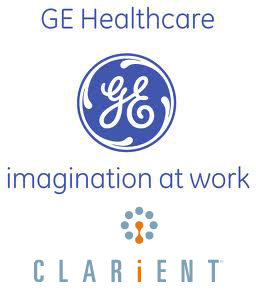GE’s Acquisition Considered A Sign Of More Deals To Come In The Clinical Laboratory Industry
Here’s more confirmation that anatomic pathology continues to be a big target on the radar screen of big healthcare corporations and Wall Street investors. Today, GE Healthcare, a unit of General Electric Company (NYSE: GE), disclosed it will pay $587 million to acquire Clarient, Inc. (NASDAQ: CLRT), the medical testing laboratory.
For pathologists and clinical laboratory managers, this is further confirmation that GE—one of the world’s major players in molecular imagin and radiology—intends to combine molecular diagnostic technologies used in anatomic pathology with its molecular imaging technologies used in radiology. In the press release about the acquisition, GE wrote that the addition of Clairent would help it create “new integrated tools for the diagnosis and characterization of cancer.”

According to GE, “The rapid increase in cancer-focused therapies is driving significant demand for molecular diagnostics. The global demand for cancer-profiling products and services is predicted to grow from $15 billion in 2009 to an estimated $47 billion by 2015.” In recent years, Clarient’s revenues have grown at a compounded annual growth rate of 68%.
John Dineen, president and CEO of GE Healthcare said that GE believes it “can build a $1 billion plus business by developing integrated diagnostic solutions for cancer and other diseases.”
Owners of independent labs will be interested to know that some financial firms speculate that more clinical laboratory and pathology M&A (mergers and acquisitions) deals are likely to take place before the end of the year. Equity Research firm William Blair and Company reports that purchases such as these “could continue to fuel M&A speculation.”
Further, upon hearing the news of the GE acquisition of Clarient today, analysts at Blair speculated that recent increases in share prices make Myriad Genetics and Genoptix, Inc., prime targets for a take over offer. Quest Diagnostics Incorporated (NYSE: DGX) was mentioned as a company known to be interested in further laboratory acquisitions. The analysts at William Blair and Company noted that “comments in its [Quest’s] third-quarter earnings call suggest the company is very focused on M&A opportunities in esoteric testing.”
Another interesting side note is that according to, Stephen Simpson at Investopedia, Clarient “has traditionally focused on smaller clients—the community pathologist at a small practice or hospital, for instance. Given GE’s global ambitions and footprint, however, it would seem probable that it will want to significantly broaden Clarient’s horizons—not just in terms of the services and tests offered, but the targeted customer base as well. If that proves true, and GE is committed to building a leading oncology diagnostics franchise, then those larger diagnostic services companies had better watch out for this new competitor.”
Besides advancing GE Healthcare’s presence in the anatomic pathology marketplace, the price GE will pay is another favorable sign for owners of clinical laboratories and anatomic pathology groups. In 2009, Clarient reported $91.6 million in revenue and posted a net loss of $6.1 million. Yet, GE is prepared to pay $587 million for Clarient, a number that is about 6.4 times gross revenue. By historic measures, this is a premium price for a pathology testing laboratory.
At a minimum, GE’s move into molecular pathology testing affirms that investors continue to expect medical laboratory testing companies to prosper in the coming years. This boom in anatomic pathology services will be led by the introduction of new genetic technologies for lab testing in tandem with the soaring utilization of laboratory tests required by the aging baby-boomer generation.
Related Information:
General Electric Goes Outside The Box In Healthcare
Goldfarb Branham Law Firm Pursuing Potential Shareholder Claims Against Clarient Due to Buyout



